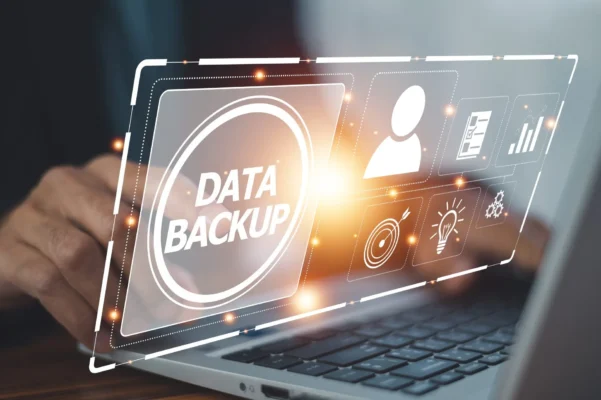
- November 13 2018
- Neil Frick
Keeping duplicate copies of your most important information saved and stored in a remote location is a safeguard in case anything goes badly wrong with your computer.
Backing up files actually doesn’t take up a lot of time and in the event, something does go wrong it will save you a lot of headaches down the track… e.g.
Computer crashes – Never a good time to have a computer crash and the likelihood you will lose data is high.
Computer virus – malicious viruses can corrupt files and disable your computer system.
Your hard drive fails – hard drives have a limited lifespan and can fail suddenly and without warning. When this occurs, there is the risk of losing months or even years of irreplaceable files and if it happens close to a deadline the timing can be a total nightmare!
Physical computer damage – Files of laptop users are at a higher risk. While laptops have the advantage of being light and portable it comes at the price of reduced durability. Laptops are quite sensitive and are easily damaged when dropped or if food/drinks get spilt on them.
Theft – computers are an easy target for thieves and cannot always be kept secure whilst traveling.
It’s quite simple, if you value what’s on your computer the smart thing to do is take steps to protect your information. You can always re-do work but precious files like family and travel photos are irreplaceable.
Most users regularly back up their files to their computer hard drive, but in the event of a total computer breakdown, this will not protect your information and files. The best option is to save the data to a separate location like an external hard drive or a large-capacity pen drive to best protect your files.
Keep in mind this method is only as secure as the device you’re backing up to. When saving your files on physical devices, the backup device needs to be kept in a different location than your computer and is also at risk of damage or loss. It’s important to copy your files often to ensure backups are up to date and all recent work is protected. Despite your best intentions, you may forget to copy your files as often as you should, leaving a large amount of recent work unprotected.
Another safe and effective method of securing files is an online backup. Files stored online are safe from damage your computer, and if something goes wrong with your machine you will still have remote access to your information from any computer with internet access. This means files can be quickly and easily restored to your computer from a secure online server.
For more information on how to keep your data safe contact Netlogyx at 07 5520 1211

